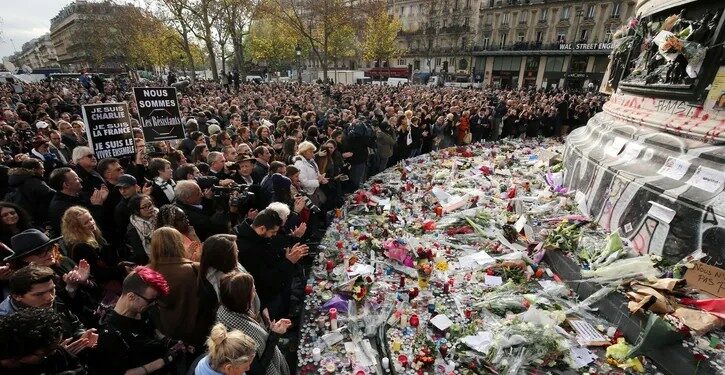On this day in 2015, Paris suffered one of the deadliest terrorist attacks in modern French history, as coordinated assaults across the city killed 130 people and injured hundreds more, marking a turning point in Europe’s fight against extremist violence.
The night of the attacks
Late on 13 November 2015, three groups of attackers launched simultaneous assaults at multiple locations across Paris. The Bataclan concert hall became the deadliest site, where gunmen took hostages and opened fire on the crowd during a performance. Restaurants and bars in the 10th and 11th arrondissements were also targeted, as was the Stade de France, where explosions were heard during an international football match attended by then-President François Hollande. The coordinated nature of the attacks shocked authorities and demonstrated a level of planning not seen in France in decades.
Immediate national response
The French government declared a nationwide state of emergency within hours, granting expanded powers to security forces and enabling sweeping counter-terror operations. Borders were tightened, Paris streets were placed under heavy military patrol, and intelligence services began large-scale investigations to identify networks connected to the attackers. President Hollande described the events as “an act of war”, calling for unity while pledging to pursue those responsible both in France and abroad.
Investigation and international implications
In the weeks following the attacks, Europe intensified cooperation between intelligence, police and border agencies. The Paris assaults exposed gaps in cross-border information-sharing, particularly related to extremist movements across the Schengen area. Investigators linked the attackers to ISIS, tracing logistical support hubs in Belgium and uncovering a wider network operating across the continent. The tragedy accelerated discussions on EU counter-terror reform and surveillance legislation, reshaping security frameworks for years to come.
Long-term effects on French society
The Paris attacks left a lasting mark on French political life, national identity, and public attitudes towards security. Vigils and memorials across the country emphasised unity, yet the events also sparked debate over civil liberties, immigration policy, and France’s role in international conflict zones. Annual commemorations now honour the victims, with ongoing efforts to support survivors and families impacted by trauma. The Bataclan reopened the year after the attack, becoming a symbol of resilience and cultural defiance.
A day of remembrance
A decade on, France continues to reflect on the events of 13 November 2015 as a defining moment in its modern history. The attacks reshaped national security strategy, strengthened European counter-terror cooperation, and left an indelible imprint on the collective memory of the country. The day serves both as a reminder of the lives lost and as a call for continued vigilance against extremist threats.
Newshub Editorial in Europe – 2025-11-13



Recent Comments